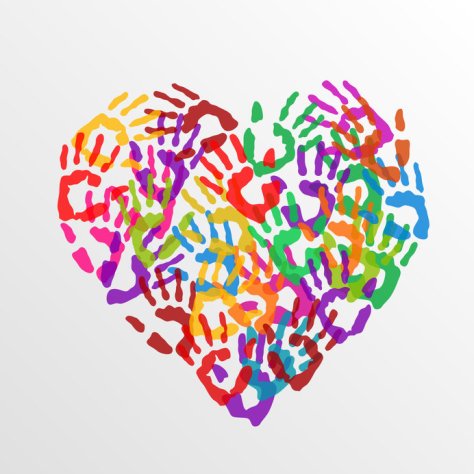In today’s world of division and polarization, it’s easy to see only what’s broken.
I get it.
But what if we’re not separate at all—what if we’re deeply, inherently connected?
What if the fractures we see are not wounds, but fractals—patterns that echo deeper truths?
Our senses show us only the visible strains, the surface tension of energy and vibration.
We miss the harmonics beneath, the subtle frequencies resonating between and within us.
So we attack, we defend—in the absence of a felt sense of the fractal rhythm always weaving us together.
But in the space of stillness, of nothingness, there is a rich, invisible pulse.
An infinite energy moves in fractals, silently connecting, endlessly creating a tapestry of possibility.
Our knowledge—our consciousness—is limited.
We crave story, structure, a sheet of music to follow.
And in seeking to understand, we often reduce the infinite into forms we can control:
Religion. Art. Science. Education.
None of these are wrong.
But each, when held too tightly, can become rigid.
Each can close the door to the fractal.
So how do we make space for what can’t be controlled?
How do we allow the fractal?
Breathe and trust.
Express and show up.
Listen and be curious.
When I do that, I tap into the infinite.
Just recently, I sat by my mother’s bedside, bearing witness to her transition—from form to energy, from Bernie to spirit.
In those final moments, something in the air shifted.
The barriers between us dissolved.
That’s why I needed to be there.
To sit beside her. To be with my sisters.
Somewhere in those quiet exchanges, I could feel the emerging fractal of our family—unfolding, rearranging, expanding.
Some might call this strange.
But it felt familiar to me—like the way I work with horses.
With horses, there’s no pretense.
No reliance on words, manners, or the learned rules of communication.
They feel everything.
They don’t dwell in stories. They live in the moment.
It’s all about the energy.
Beside my mother, it was the same.
Our past was absent.
Separation vanished.
It was a sweet, sacred space.
Her anxiety and agitation had eased.
Yes, she was still working to stay—but something else was also there.
Something softer, wiser.
I didn’t try to explain it. I just trusted it.
Music and words drifted through the room.
But more present to me was the soundless symphony from beyond.
Call it mist. Call it music. Call it the song of souls.
She was more tuned in than I was—already on her next adventure.
I was still unraveling the fabric of our shared life.
Soon, it would be just a fractal, dancing in the room.
It was a beautiful moment—beyond the veil.
That feeling has lasted.
It lingers, because it’s not energy bound by time.
It doesn’t need understanding.
It asks not to be named or narrated.
It simply is.
And in it, I remember:
We are fractals of interconnected energy.
I don’t need to fear or worry.
My work is to be creative. Curious. Open to the unknown and the infinite.
Not to conquer or control—but to live in the joy of our shared energy and our singular spirit.
We are dancers—
Not just humans—
When we remember the fractal that connects us all.


















You must be logged in to post a comment.